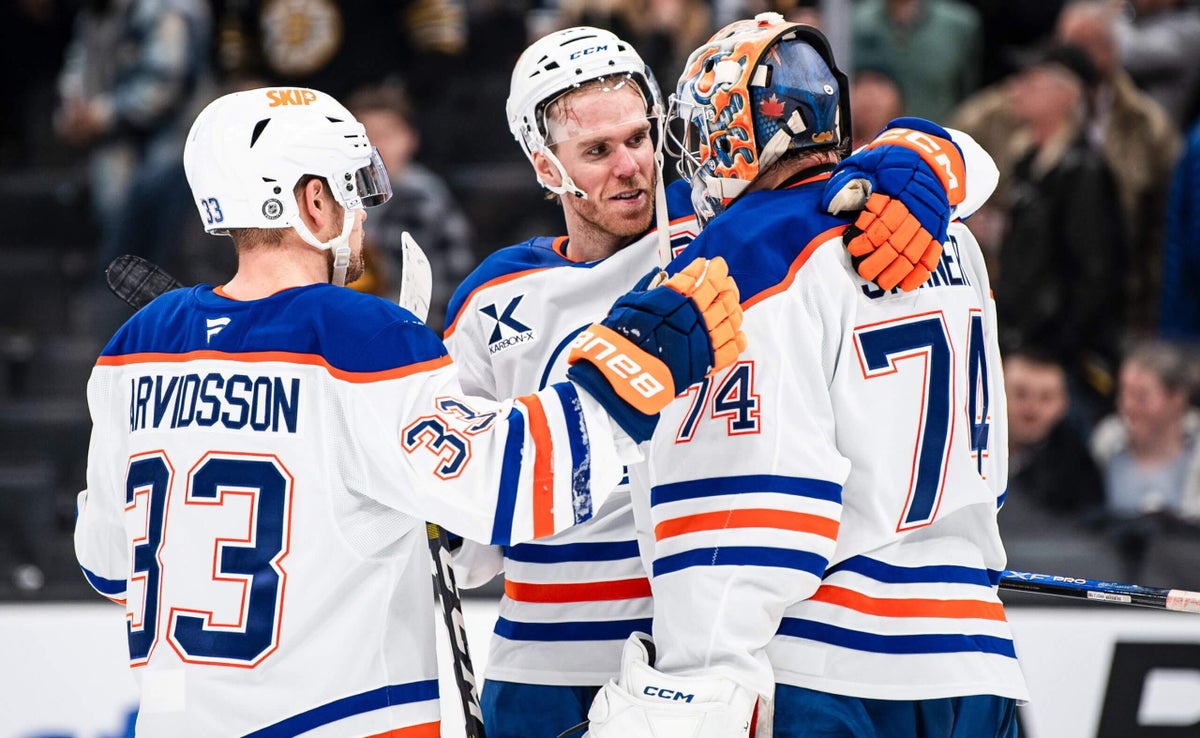The Edmonton Oilers entered this offseason with a clear mandate: demonstrate to Connor McDavid that the team is committed to winning, not just in the present, but for the foreseeable future. However, their actions during the initial wave of free agency have left many questioning whether they’ve done enough to achieve this goal.
While the Oilers focused on retaining existing talent, the additions needed to elevate the team to championship contention remain elusive. The signing of Andrew Mangiapane addresses a need for wing depth, but significant questions linger about the top-six forward group and the goaltending situation. This article delves into the Oilers’ offseason moves, analyzing the impact of Mangiapane’s arrival and exploring the challenges that still lie ahead in building a Stanley Cup-caliber roster.
Before diving into free agency, the Oilers prioritized re-signing key players. These included deals for Trent Frederic, Evan Bouchard, Kasperi Kapanen, and Noah Philp. While solidifying the existing roster is important, it doesn’t address the pressing need for upgrades in key areas.
These re-signings, while prudent, consumed valuable cap space that could have been used to pursue impactful free agents. The question remains: did the Oilers miss opportunities to significantly improve their team by prioritizing retention over external additions?
The Oilers’ most notable move in free agency was signing winger Andrew Mangiapane to a two-year, $3.6 million AAV deal. Mangiapane, who once scored 35 goals for the Calgary Flames, experienced a diminished role with the Washington Capitals last season, scoring 14 goals in 81 games. “Mangiapane is a player who has shown flashes of brilliance,” says hockey analyst Bob McKenzie, “but his consistency remains a concern. He’ll need to regain his scoring touch in Edmonton to justify the signing.”
Mangiapane’s signing addresses the need for depth on the wings, but he’s unlikely to be the game-changing addition that propels the Oilers to the next level. The Oilers hope that a larger role in Edmonton will help Mangiapane rediscover his scoring touch and provide valuable secondary offense.
Several potentially impactful wingers went to other teams, and Jake Allen, a UFA goalie, re-signed with New Jersey. With limited cap space, the Oilers couldn’t compete for top-tier free agents like Brock Boeser. The departure of Corey Perry and Connor Brown further thinned out the forward depth. “The Oilers needed to make a splash in free agency,” says former NHL general manager Brian Lawton, “but they were unable to do so due to cap constraints and a lack of appealing options.”
The inability to upgrade the top-six forward group or address the goaltending situation raises concerns about the Oilers’ ability to compete with the league’s elite teams. The team’s reliance on Stuart Skinner and Calvin Pickard in net remains a significant question mark.
The Oilers’ hopes for improvement may hinge on the development of young players like Matt Savoie and the emergence of European signing David Tomasek. However, relying on unproven players carries significant risk. “The Oilers are banking on some of their prospects to step up,” says NHL scout Craig Button, “but there’s no guarantee that they’ll be able to contribute at the NHL level right away.”
Unless these players exceed expectations, the Oilers may be worse than they were at the end of last season. This is a concerning prospect, especially with Connor McDavid entering the final year of his contract.
Connor McDavid has stated that he wants to feel confident in the Oilers’ ability to contend annually before signing a contract extension. The team’s offseason moves, or lack thereof, haven’t exactly inspired confidence. “McDavid is looking for a reason to stay in Edmonton,” says hockey insider Elliotte Friedman, “but the Oilers haven’t given him much to be excited about so far.”
The Oilers’ management team faces immense pressure to demonstrate to McDavid that they’re committed to building a championship-caliber team. Failure to do so could result in the departure of the game’s best player.
Despite the pessimism, the Oilers’ restrained approach to free agency may not be a complete disaster. By not making any impulsive, high-priced signings, they avoided potential mistakes. This allows them to explore the secondary market for discounted short-term contracts or accrue cap space for a significant addition at the trade deadline. “The Oilers played it safe in free agency,” says The Athletic’s Pierre LeBrun, “which may be the best thing they could have done given their cap situation.”
The Edmonton Oilers’ offseason has been underwhelming, to say the least. While the signing of Andrew Mangiapane adds depth, it doesn’t address the team’s most pressing needs. The Oilers have failed to significantly upgrade their top-six forward group or improve their goaltending, raising concerns about their ability to compete for a Stanley Cup.
The most disappointing aspect of the Oilers’ offseason is that they haven’t provided Connor McDavid with a clear blueprint for future success. With McDavid entering the final year of his contract, the pressure is on management to make significant improvements to the roster before the trade deadline. Otherwise, the Oilers risk losing their franchise player and jeopardizing their chances of contention for years to come.

Leave a Reply